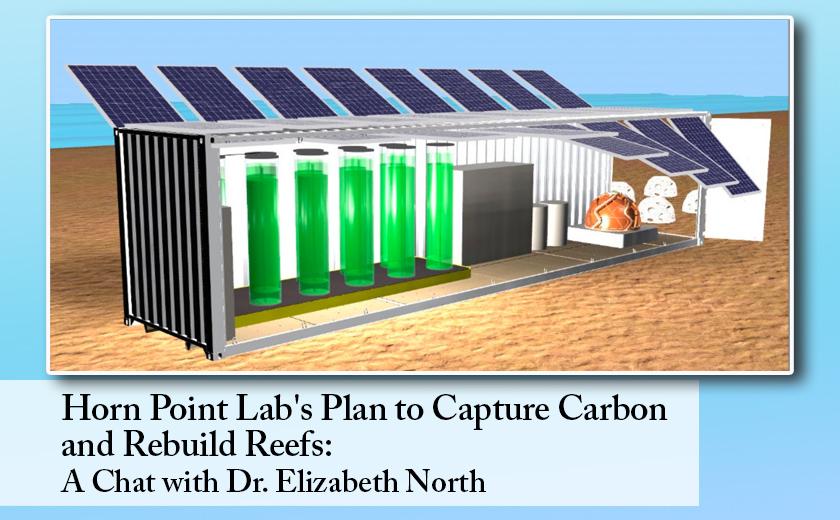You would think that with the billions of dollars available for climate change research, finding grant support to find a scalable solution to protect or replace dying coral reefs would be a cinch. And yet, in reality, this kind of project is not that different from any other project needing venture capital investment. Those seeking highly competitive funds must demonstrate to government agencies, tasked with saving taxpayer money, that there is a high probability of success with the project’s final goal.
That’s a tough thing to document and many of these extraordinarily creative and innovative studies are inevitably considered too “high risk” for federal or state grants. Which, in turn, has led many scientists to turn to private philanthropy to close this critical gap in funding.
And that’s what Elizabeth North, an associate professor at Horn Point Laboratory, realized she had to do as she contemplated a five-year project that could lead to a transformational way to protect or replace some of the world’s most endangered coof reefs with high technology replacements.
Working with some of the best and brightest people in biology, physical chemistry, structural design, and business plan modeling, Dr. North developed a game plan that held the promise of using these units to not only limit carbon’s impact on climate change but remove it.
That’s where institutions like the private Bailey Wildlife Foundation come into play. While this research-oriented grantmaker is located in Cambridge, Massachusetts, one of the Foundation’s board members and son of the founder of the fund, Bill Bailey, has called Talbot County his home for the last twenty years. And during that time, he has come to know and respect Horn Point Laboratory and its unique role in ecological studies.
Starting with a small grant in 2015, Bill became acquainted with Professor North’s work and a few years ago became a successful advocate to help fund her Coral Defense project to capture carbon and rebuild coral reefs.
The Spy drove down to Dorchester County to meet with Professor North to understand the project and how this experiment, if successful, could dramatically change the course of climate change for our planet.
This video is approximately eight minutes in length. For more information about Horn Point Laboratory please go here.




Thomas Malone says
Great interview and an exciting project!